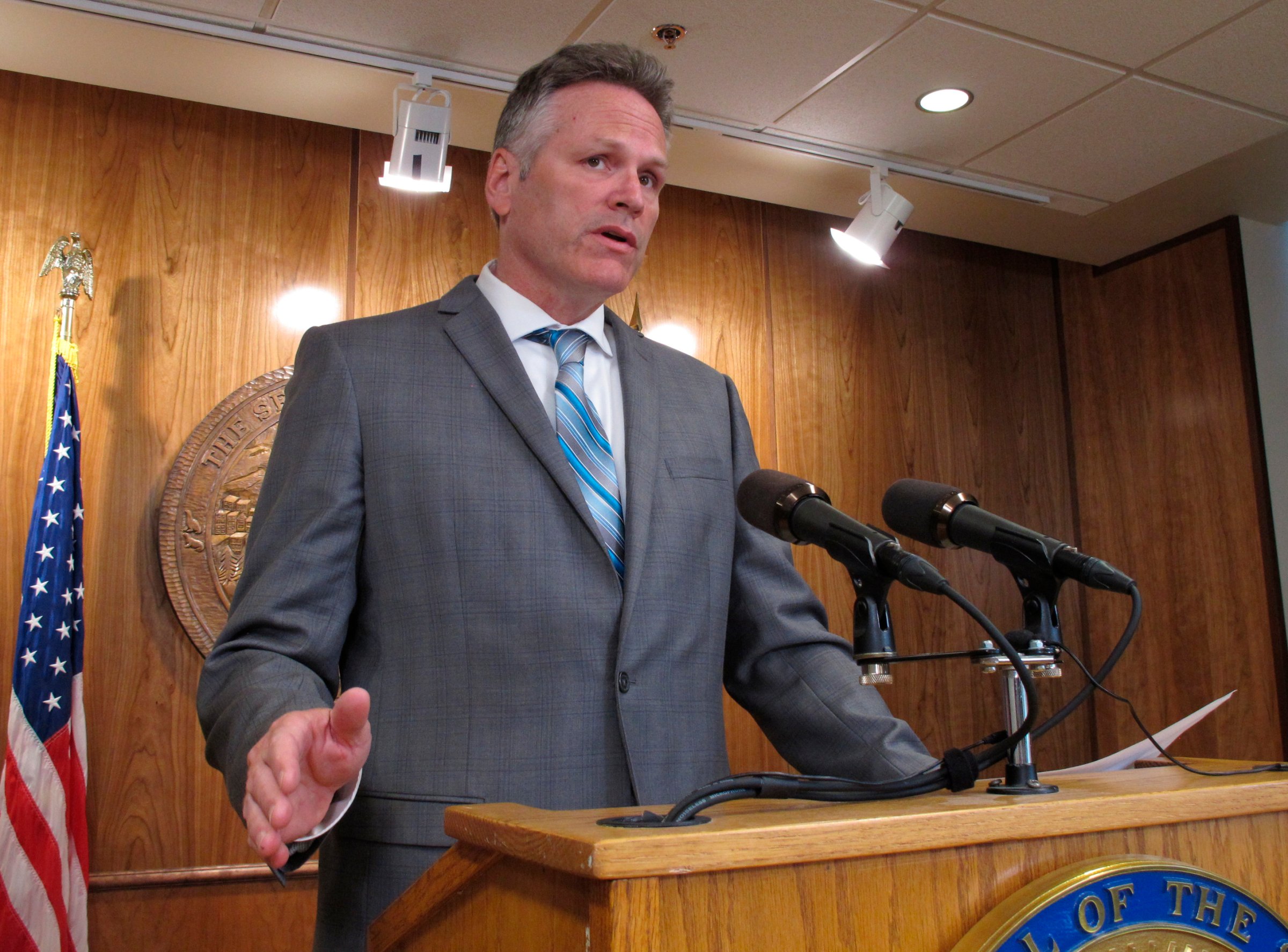
Alaska Gov. Mike Dunleavy thinks he has a solution to years of state budget shortfalls from shrinking oil industry revenue. On June 28, he used his veto power to slash more than $440 million from the state’s budget. The cuts are wide-ranging, but the University of Alaska will take the biggest single hit, with more than 40% of its state funding––$130 million––gone.
Critics say the cuts will only hurt Alaska’s economy, which is recovering now after three-straight years of employment declines, even more.
“[Dunleavy is] basically choosing to enter a recession,” Nolan Klouda, the Director for the Center for Economic Development at the University of Alaska-Anchorage tells TIME.
The cuts are not just meant to plug a gap in the state budget, which is largely due to lower revenue from the oil industry. Since 1982, every full-time Alaska resident has received a dividend check from the state’s $64 billion Alaska Permanent Fund, which was established to manage the revenue from the state’s oil wealth. In recent years, Permanent Fund Dividend (PFD) payments have ranged between $1,022 and $1,600, but Dunleavy has promised Alaskans about $3,000 this year––what he says they should be getting if money from the Permanent Fund was not being siphoned off to help prop up the state budget as income from the oil industry has shrunk with the falling price of oil.
“Over the past several years we have used [$14 billion] from our savings to subsidize the government. This situation, everyone agrees, is not sustainable,” Dunleavy, a Republican and former school teacher, said in a statement announcing the cuts.
On Thursday, state lawmaker failed to override the veto, in part because many Republicans who side with Dunleavy refused to even go to the state capital in Juneau. Instead, they met in the Anchorage suburb of Wasilla.
Klouda and Mouchine Guettabi, a professor of economics and public policy at the University of Alaska-Anchorage published an analysis that they said shows the cuts will hurt the state’s economic fortunes. Their report is not without self-interest. The University of Alaska system will have to lay off up to 1,300 faculty and staff, cut programs and close campuses as a result of the cuts, officials have said. The university system will likely lose about 3% of its student enrollment, Klouda and Guettabi’s report says.
The researchers also estimate 4,200 jobs will be eliminated from Alaska just in the short-term. Because of the Medicaid reductions in the governor’s budget cuts, health care providers will also receive less revenue, which will result in workers being laid off, the professors’ analysis says.
All of this is likely to worsen the state’s “brain drain,” as students and professionals move elsewhere, the researchers said.
The cuts to the university will also effect employers’ ability to hire skilled graduates, which, according to the researchers’ analysis, will harm Alaska’s economy in the long term.
Aside from the university and healthcare, the state will also cut the Senior Benefits Program, which provides monthly payments of $250 to low-income senior citizens.
As a result of the governor’s actions, the state’s labor unions, advocates for the low-income Alaskans and even some business groups are lobbying state lawmakers to veto the cuts.
“You’ve got labor, banking, environmentalists and so many groups are all coming together trying to fight this veto. Never have all these factions come together like this,” Vince Beltrami, the President of Alaska’s American Federation of Labor and Congress Industrial Organizations (AFL-CIO) tells TIME.
Alaska’s economy has been reeling from years of employment declines that started in October 2015, with the drop in oil prices.
“Alaska doesn’t have a very diverse economy. It’s like a three-legged stool. You have federal spending, oil and then everything else like tourism, mining and fishing,” Klouda says. “It’s easy for one of those to shock the economy.”
Between October 2015 and September 2018 more than 12,000 jobs were lost in Alaska.
“Our budget should be sustainable, predictable and affordable,” Dunleavy said in the statement announcing the cuts. “These vetoes should not come as a surprise to Alaskans as they have been part of our proposal since February.”
Klouda says that there are better solutions out there like implementing statewide sales or income taxes or cutting back on the amount of the permanent fund dividend check.
“This really only has downside potential,” Klouda says. “This is more of a policy fix and not really an economy one.”
More Must-Reads from TIME
- Cybersecurity Experts Are Sounding the Alarm on DOGE
- Meet the 2025 Women of the Year
- The Harsh Truth About Disability Inclusion
- Why Do More Young Adults Have Cancer?
- Colman Domingo Leads With Radical Love
- How to Get Better at Doing Things Alone
- Michelle Zauner Stares Down the Darkness
Write to Josiah Bates at josiah.bates@time.com